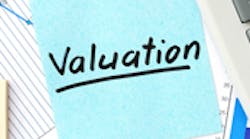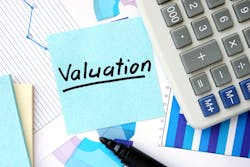Valuation forecast: What dentists need to know before retiring
In this week's Dental CPA Blog post, Drew Hinrichs, CPA, looks at three market trends that will have a long-term effect on dentists' retirement age.
In a 2014 survey, dentists over 40 said they planned to retire at an average age of 66.9. Whatever the future holds, hiring a dental certified public accountant (CPA) can help forecast the value of your dental practice, so you get a better return on your investment. Here are some predictions that could influence the net worth of your dental practice as well as some long-term benefits to hiring a dental CPA.
Baby boomers could saturate the market
When baby-boomer dentists—defined as those between the ages of 51 and 70—retire, expect a surplus of practices to be available for purchase. Research from Australia, for example, suggests that the dental workforce has aged considerably and that half of current dentists will retire by 2026. It’s not all doom and gloom though: A dental CPA can help you navigate a saturated market and suggest ways to make up the potential shortfall. What’s more, a professional can take advantage of tax incentives that benefit your practice during your final years as a dentist.
Market demand for your practice will stay consistent
The number of dental graduates is expected to plateau over the next few years. Statistics from Dental Economics reveal that there were more than 5,000 dental graduates every year in the United States from 1975 through 1984. These numbers fell to 4,000 between 1990 and 1996. And despite a sharp increase in the country’s population, the number of graduates between 2016 and 2020 is expected to stay consistent at around 4,500 per year.
In addition, the percentage of Americans who require routine dental care— around 60% to 70%—is holding stable. How will these trends in the industry affect you as your practice matures? A dental CPA can provide insights on the latest developments as you move closer toward retirement.
Energy-efficiency tax incentives can help if you invest in your practice
Spending money on new facilities and leasehold improvements might not sound like a wise investment if you are planning to retire in the very near future. This is especially true when you consider that equipment won’t be included in the purchase price of your practice and will likely depreciate in value. However, you can make a tax deduction claim for any energy-efficient building practices—and a CPA can fill out an application on your behalf.
Winding down your business is never easy, but a dental CPA can advise you on tax relief and benefits as you approach retirement.
Andrew Hinrichs, CPA, is a partner at HinrichsZenk+Pesavento (HZP), a dental CPA firm. Located in the suburbs of Chicago and Kansas City, HZP works with dentists around the country. Tax planning opportunities, practice growth, and creative retirement planning are key focus areas. To set up a consultation with an HZP advisor, call HZP's Kansas City office at (913) 681-1350 or Chicago office at (708) 447-8399.







